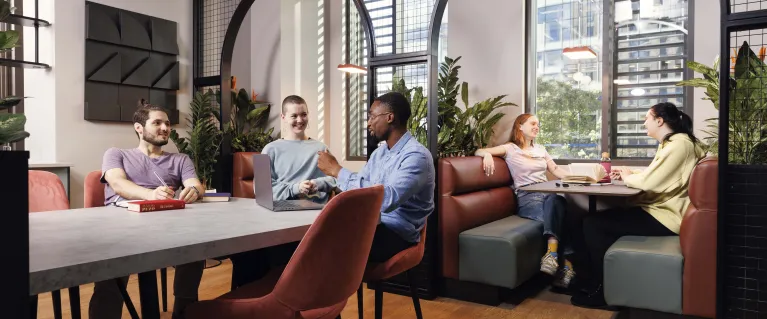
Purpose-built Student Accommodation London Plan Guidance
Key information
Publication type: London Plan Guidance
Publication status: Adopted
Publication date: Wednesday 20 November 2024
What is the Purpose-built Student Accommodation London Plan Guidance?
The Purpose-built student accommodation (PBSA) London Plan Guidance (LPG) provides advice on how to apply London Plan Policy H15 to best meet London’s needs. This guidance applies to a specialist form of housing designed and managed for students. This typically comprises a mixture of flats for 6-8 students with shared living spaces, and larger studio flats, plus additional communal social spaces and other facilities.
As well as providing students with a place to live, PBSA can play an important role in alleviating pressures on the wider private rental sector. Indirectly its provision also helps underpin London’s higher education sector as a global player, and the wider knowledge economy of the city.
The LPG sets out detailed advice on siting, designing and developing such housing, including balancing it with other housing types. It aims to ensure that these developments are designed and managed to be of good quality, safe and inclusive and integrated into their neighbourhood. The guidance is aimed at those designing PBSA schemes and decision-makers assessing them as part of the planning application process.
Why do we need it?
The London Plan 2021 recognises that good growth requires careful cultivation, balancing competing pressures and driving up the quality of development of buildings and surrounding spaces. There is considerable market interest in delivering PBSA in the wake of significant increases in students living and studying in our city. However, Londoners also need other types of housing, with the need for conventional affordable housing particularly great.
Policy H15 includes important mechanisms to ensure proportionate PBSA provision, and to deliver affordable student accommodation. It also requires that planners ensure that PBSA contributes to mixed and inclusive neighbourhoods. However, it can remain challenging to navigate different interpretations of what this means in practice, slowing down the delivery of these important objectives. In addition, the housing design standards and policies do not apply to this kind of accommodation. The guidance helps fill that gap and to provide that consistency to ensure we create places that meet different needs and provide opportunities for all.
How has this guidance been prepared?
This guidance has been prepared by the Greater London Authority (GLA) with input and advice from industry professionals and other stakeholders, including those on the Mayor’s Academic Forum. This comprises representatives of London’s universities, student housing providers and their advisors, the NUS, and London’s local planning authorities. Public engagement on the guidance was carried out between October 2023 and January 2024. Details of the consultation can be found on our engagement portal.
A consultation summary report summarises feedback received, and how this informed the final guidance.
An Equality impact assessment has been prepared for the guidance building on the consultation draft version here.
The LPG may be periodically reviewed and updated to align with changes in building regulations and government guidance.
In adopting this LPG, the former practice note on Wheelchair Accessible Student Accommodation has been withdrawn as it is superseded, so it no longer has any status.
In addition, a new process and criteria for applying to become an approved proxy for nominations purposes (as referenced in paragraph 3.2.6 of the LPG) has been agreed as set out in this document.
Stay in touch
Register to be notified of planning policy consultations or sign up for GLA Planning News.
Need a document on this page in an accessible format?
If you use assistive technology (such as a screen reader) and need a version of a PDF or other document on this page in a more accessible format, please get in touch via our online form and tell us which format you need.
It will also help us if you tell us which assistive technology you use. We’ll consider your request and get back to you in 5 working days.